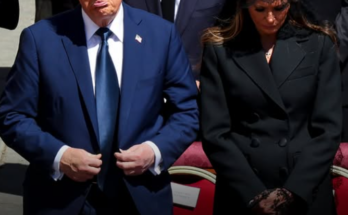Ukrainian President Volodymyr Zelenskyy’s recent statement, following a contentious meeting with U.S. President Donald Trump, reflects a complex interplay of diplomacy, national interests, and geopolitical strategy.
Background of the White House Encounter
On February 28, 2025, Presidents Zelenskyy and Trump met at the White House to discuss a potential agreement on Ukraine’s mineral resources and to explore avenues for peace amid ongoing conflicts with Russia. The meeting, however, devolved into a heated exchange, with President Trump accusing Zelenskyy of leveraging U.S. involvement to gain an upper hand in negotiations, stating, “He disrespected the United States of America in its cherished Oval Office.”
The confrontation led to an abrupt end to the meeting, with planned events, including a joint press conference and luncheon, being canceled. President Trump subsequently announced a suspension of all military aid to Ukraine, citing concerns over Ukraine’s commitment to peace negotiations.
Zelenskyy’s Response
In the aftermath, President Zelenskyy issued a statement expressing regret over the meeting’s outcome but refrained from issuing an apology. He emphasized Ukraine’s readiness to engage in peace talks, stating, “We are ready to come to the negotiating table… My team and I stand ready to work under President Trump’s strong leadership to get a peace that lasts.”
Zelenskyy also highlighted the need for immediate measures such as a ceasefire and the release of prisoners, contingent upon reciprocal actions from Russia. He acknowledged past U.S. support, particularly the provision of Javelin missiles, underscoring their significance in Ukraine’s defense efforts.
Interpretations and Implications
Observers have noted that while Zelenskyy’s statement conveys a willingness to pursue peace, it subtly critiques the U.S. administration’s recent actions. By labeling the Oval Office clash as “regrettable,” Zelenskyy implies that the incident was detrimental to both nations and underscores the importance of constructive dialogue.
Furthermore, his call for mutual steps toward de-escalation places the onus not solely on Ukraine but also on international partners, including the U.S., to actively facilitate the peace process. This balanced approach seeks to reaffirm Ukraine’s sovereignty while appealing for continued support from allies.
International Reactions
The suspension of U.S. military aid and intelligence sharing has raised concerns among European allies. The United Kingdom and France, in particular, have been prompted to reassess their roles in NATO and their support for Ukraine. British Prime Minister Keir Starmer and French President Emmanuel Macron are reportedly preparing to join Zelenskyy in presenting a unified peace plan in Washington.
These developments underscore the delicate balance of international diplomacy, where national interests, alliance dynamics, and individual leadership styles converge.
Conclusion
President Zelenskyy’s recent statement, following the contentious White House meeting, reflects a nuanced diplomatic stance. While expressing readiness for peace and acknowledging past U.S. support, he subtly critiques the recent suspension of aid and emphasizes the need for mutual efforts toward de-escalation. This approach aims to maintain Ukraine’s sovereignty and secure continued international support amid evolving geopolitical dynamics.


